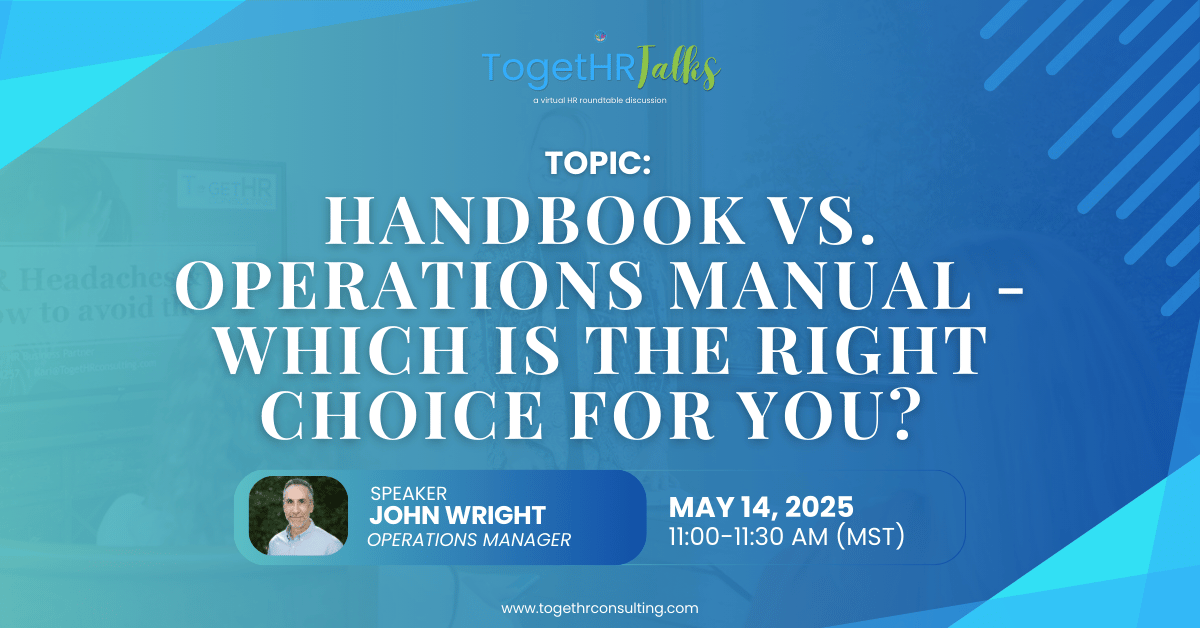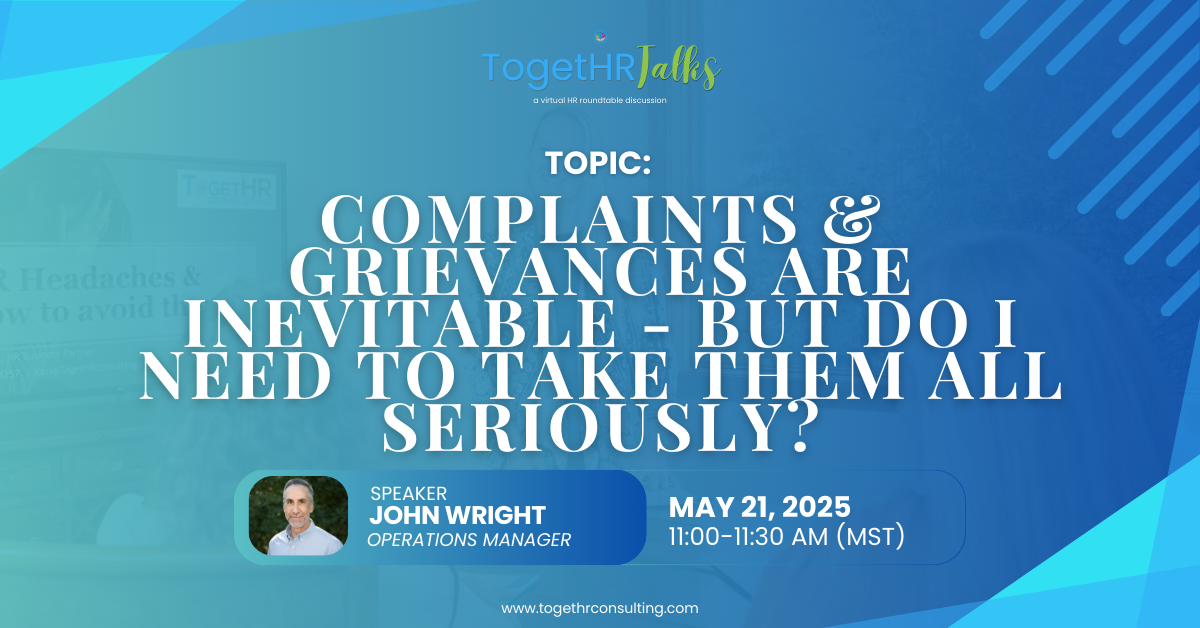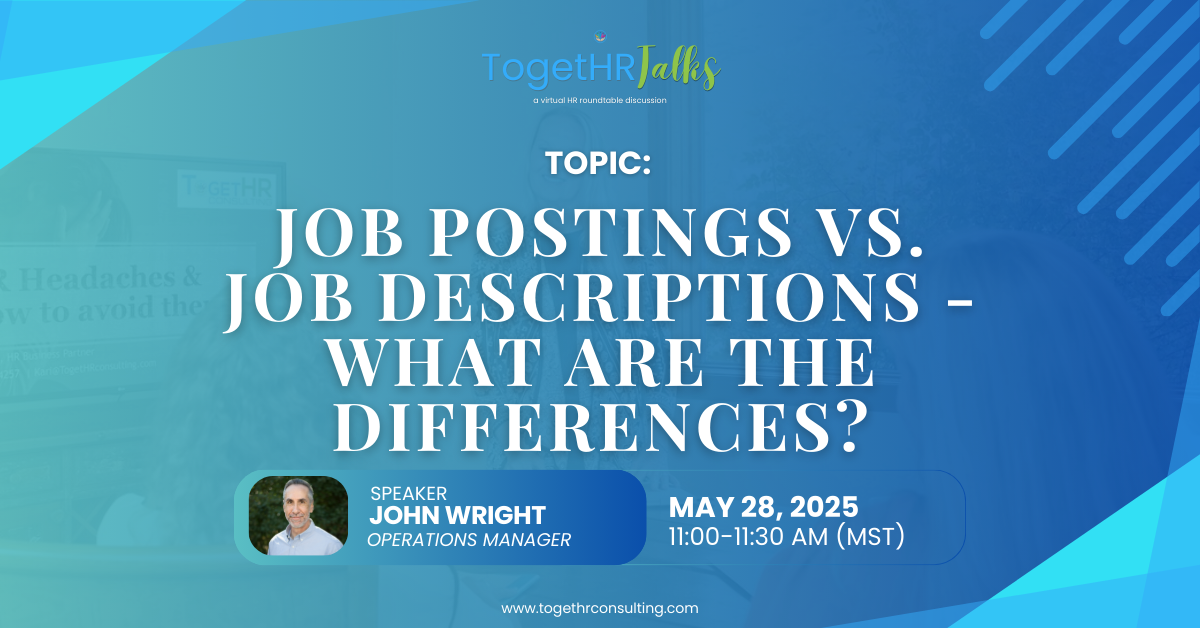Your Solution for everything HR … Payroll … Bookkeeping
TogetHR Consulting offers you expert human resources, partnerships that are fully customized to match the needs of your business.
Choose from covering the basics with compliance and simple forms to higher-levels partnership that include performance reviews, discipline, coaching, compensation/benefits analysis and employee separations. Additional options may include: handbook updates, safety programs, unemployment communications, and benefit administration. Most importantly, you choose the options you need the most, from individual projects to an all-inclusive outsourced solution package designed by you for your employees.
Our Services
Let’s get started with one of these options.
HR Services
Not sure if your compliant or saying the right thing? Gain peace of mind knowing that your employees’ needs are being taken care of. This frees you up to do what you do best – serve your customers.
Bookkeeping Services
Understanding and organizing the business financials is critical! Without it, you’re flying blind. Allow our experts to take this load off your shoulders.
Payroll Services
A reliable outsourced solution without the internal slip of sharing of wage information and personalized to your company and the number of employees. Secure and easy for everyone to navigate.
Training & Development
Prove to your employees they ARE valued by investing in their development, and learning. Build an enthusiastic and engaged workplace environment where everyone thrives.
Here's What Our HR Consulting Clients Have Said:
Upcoming Workshops & Events
Bestsellers From The Form Shop
Featured Resources
Are you just starting your business and aren’t sure where to even begin?! Check out our helpful links:
Business Start Up Checklist
There are many FREE resources in every community across the U.S. Tap into the power of networking with like minded entrepreneurs and business owners who have walked down this path before.








